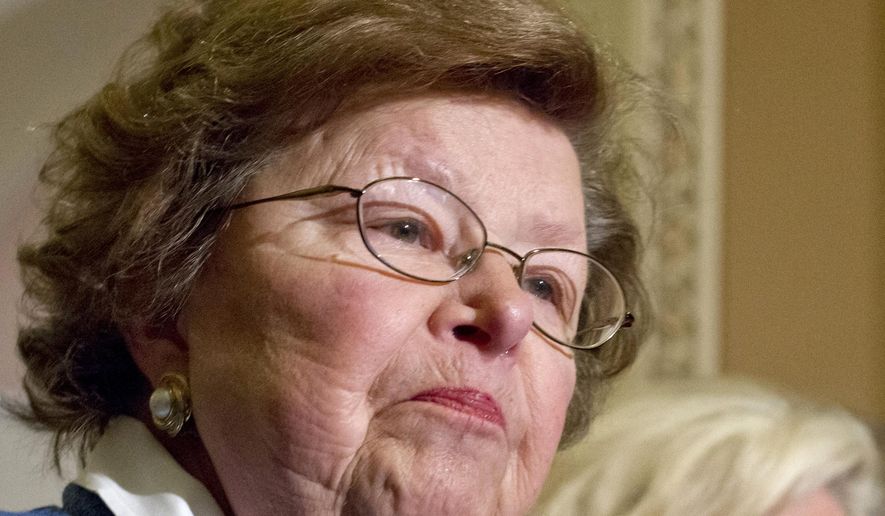The VA illegally fired a disabled Army vet who’d complained to Congress about the department’s bungling treatment of his case, the government’s own whistleblower watchdog said in a new report Tuesday that highlights the department’s questionable treatment of those who seek to expose its problems.
Bradie Frink faced a series of retaliations, including eventually being fired from his job as a time clerk at the Baltimore Veterans Affairs office, after he complained to Sen. Barbara Mikulski that the office had lost his claim folder.
His supervisor wrongly accused him of abusing vacation time and misusing his position to track down his file, and even misconstrued an offhand remark into a threat against a fellow employee, the Office of Special Counsel, the agency charged with protecting whistleblowers, said in its report.
Investigators found three different employees involved in the firing “lacked credibility” in their stories, and even if they had been correct, the punishment should have been less severe than being fired.
“On June 13, [Supervisor D] informed [Supervisor A] that Frink had filed a congressional complaint even though [Supervisor D] had been trying to work with Frink internally to locate his claims folder. [Supervisor D] expressed anger and hostility with Frink’s decision to file a complaint with Sen. Mikulski,” the report said, redacting the names of the supervisors from the 19-page report.
The problems began when Mr. Frink took a job at the office. Under department rules, veterans who have claims pending must have their files transferred to another office so their colleagues don’t have access to their personal details.
SEE ALSO: Golden Hammer: VA’s record of waste, fraud, abuse keeps piling up
But the Baltimore office had lost the file, causing Mr. Frink to miss several payments due him.
He tried to find the file, including approaching other office workers to see if they’d seen it. But after four months of no luck, he wrote to Ms. Mikulski, sparking the retaliation, investigators said.
His supervisors said he was fired because he asked an employee other than a supervisor about his missing file, using his pass card to get into a file center that was supposed to be off limits, abused time off, and made threats.
In each case, the OSC said the accusations were overstated or fabricated — and investigators said the punishment of firing was far out of proportion compared to penalties other employees earned.
“In nearly every single instance involving similarly-situated employees, the penalties were much lower relative to the alleged misconduct than in Frink’s case,” the OSC said. “Furthermore, the level of care taken to counsel employees and document misconduct, as well as the amount of investigation done to confirm what really happened, all contrasted sharply with how the VA handled Frink’s case.”
Investigators speculated that the supervisors were touchy over Mr. Frink because the Baltimore office was already facing scrutiny over claims processing.
SEE ALSO: Veterans group wants presidential candidates to address issues through town hall meetings
The Baltimore Sun had revealed months earlier that the Baltimore office had the highest percentage of backlogged veterans claims in the country and the highest processing error rate in the country.
The VA said that the actions of Mr. Frink’s supervisors were “unacceptable.”
“Intimidation or retaliation — not just against whistleblowers — but against any employee who raises a hand to identify a problem, make a suggestion or report what may be a violation in law, policy or VA’s core values — is absolutely unacceptable,” the VA said in a statement.
They said they had been working with OSC to improve whistleblower protections and “facilitate more efficient accountability actions for supervisors who engage in retaliatory conduct.”
Whistleblower protection has been a touchy subject for the agency, especially after the scandal last year at a Phoenix, Arizona,VA hospital, where employees had been doctoring waiting lists to make the hospital seem more productive, and dozens of veterans died while waiting for doctor’s appointments. The whistleblower in that case, Dr. Katherine Mitchell, said she faced excessive harassment from her supervisors and other employees. While Dr. Mitchell stayed with the VA, another whistleblower, cardiologist Dr. Lisa Nee, chose to leave her Illinois VA hospital because the backlash was not worth staying.
The House of Representatives passed a bill late June to expedite the process of firing inept or malicious employees late June. The Senate has yet to take up the bill, which advocates say contain strong whistleblower protections.
The OSC recommended that Mr. Frink be given his job back and given back pay, and recommended two supervisors who retaliated be disciplined.
The VA said Mr. Frink was rehired as of Tuesday, but did not say whether the two supervisors would face consequences.
The department, however, insisted Baltimore has improved, saying a backlog of 16,959 claims at the end of 2012 has been reduced to just 1,751 claims as of July.
• Anjali Shastry can be reached at ashastry@washingtontimes.com.




Please read our comment policy before commenting.